How Cloves Can Spice Up Your Health: 12 Amazing Benefits You Need to Know
When you think of cloves, you might think of the warm and spicy aroma of pumpkin pie, mulled wine, or gingerbread cookies. But did you know that cloves are more than just a delicious ingredient for your holiday treats? Cloves are actually one of the most powerful natural remedies that can boost your health in many ways.
Cloves are the dried flower buds of the clove tree, an evergreen native to Indonesia. They have been used for centuries by various civilizations for their medicinal and culinary purposes. They have a distinctive flavor and aroma, thanks to their active compound Eugenol, which also gives them many health benefits.
Cloves can help reduce inflammation, fight free radicals, protect your stomach and liver, lower your blood sugar levels, improve your cardiovascular health, fight cancer cells, improve your oral health, relieve pain, and more. In this blog post, you will learn more about the history, nutrition, and health benefits of cloves, as well as how to use them in your kitchen and daily routine.
Este artículo también está disponible en Español
Health Benefits of Cloves: How Cloves Can Boost Your Well-Being
Cloves have been used for centuries as a natural remedy for various health concerns. Modern research has confirmed that cloves have many health benefits, thanks to their active compounds, especially Eugenol. Here are some of the amazing benefits of cloves that you need to know:
Reduced Inflammation

Eugenol in cloves has anti-inflammatory properties that can help reduce pain and swelling in various conditions, such as arthritis, diabetes, and heart disease. Eugenol works by inhibiting an enzyme called cyclooxygenase (COX), which is involved in the production of inflammatory molecules called prostaglandins. By blocking COX, eugenol can lower the levels of prostaglandins and reduce inflammation.
A study in rats found that eugenol reduced paw edema and joint inflammation induced by carrageenan. Another study in mice found that eugenol reduced colitis-induced inflammation and oxidative stress in the colon.
Fewer Free Radicals
Cloves are rich in antioxidants that can help prevent oxidative stress and chronic diseases. Oxidative stress is caused by an imbalance between free radicals and antioxidants in the body and can damage cells, proteins, and DNA. Antioxidants are compounds that can neutralize free radicals and protect the body from their harmful effects. Cloves contain several antioxidants, such as eugenol, beta-carotene, vitamin C, and flavonoids.
A test-tube study found that clove extract had a higher antioxidant capacity than other spices, such as cinnamon, oregano, thyme, and sage. Another test-tube study found that eugenol was more effective than vitamin E in scavenging free radicals.
Reduced Ulcers

Cloves can help protect your stomach from ulcers by thickening the mucus layer that protects the stomach lining. Ulcers are painful sores that form in the stomach or intestines when the mucus layer is damaged by acid or bacteria. The mucus layer acts as a barrier between the stomach acid and the stomach tissue, preventing erosion and inflammation. Cloves can help increase the production of mucus and enhance its quality, making it more resistant to damage.
A study in rats found that clove extract prevented gastric ulcers induced by ethanol or aspirin by increasing mucus secretion and reducing acid output.
Improved Liver Function
Cloves can help improve your liver function by protecting it from damage and enhancing its detoxification abilities. The liver is responsible for filtering the blood, producing bile, and metabolizing nutrients. It also plays a key role in detoxifying the body from harmful substances, such as alcohol, drugs, and toxins. Cloves can help protect the liver from oxidative stress and inflammation, which can impair its function and lead to liver disease. Cloves can also help activate certain enzymes in the liver that are involved in the elimination of toxins.
A study in mice found that clove oil prevented liver damage induced by carbon tetrachloride, a toxic chemical, by reducing oxidative stress and inflammation. Another study in rats found that clove extract improved liver function and reduced liver fibrosis induced by thioacetamide, a hepatotoxic agent.
Blood Sugar Control

Cloves can help lower your blood sugar levels by improving the insulin sensitivity of your tissues. Insulin is a hormone that regulates blood sugar levels and helps cells use glucose for energy. Insulin resistance is a condition where the cells become less responsive to insulin, resulting in high blood sugar levels and an increased risk of diabetes.
Cloves can help improve insulin sensitivity by inhibiting certain enzymes that break down carbohydrates and fats, such as alpha-amylase and alpha-glucosidase. By slowing down the digestion of these macronutrients, cloves can prevent spikes in blood sugar levels and improve glucose uptake by the cells.
A study in diabetic rats found that clove extract lowered blood sugar levels and increased insulin secretion. Another study in healthy volunteers found that adding cloves to a meal reduced the postprandial rise in blood glucose.
Inhibitory Effect on Digestive Enzymes
Cloves can help slow down the digestion of carbohydrates and fats by inhibiting certain enzymes that break them down. This can help prevent spikes in blood sugar levels and aid weight management. As mentioned above, cloves can inhibit alpha-amylase and alpha-glucosidase, which are enzymes that break down starches into sugars.
They can also inhibit lipase, which is an enzyme that breaks down fats into fatty acids and glycerol. By inhibiting these enzymes, cloves can reduce the amount of calories absorbed from food and increase the feeling of fullness.
A study in mice found that clove extract reduced weight gain and fat accumulation induced by a high-fat diet. Another study in rats found that clove extract reduced food intake and body weight.
Improved Cardiovascular Health

Cloves can help improve your cardiovascular health by lowering your cholesterol and triglyceride levels, relaxing your blood vessels, and improving your blood flow. These effects can help prevent or treat heart disease, hypertension, and stroke. Cloves can lower cholesterol and triglyceride levels by inhibiting an enzyme called HMG-CoA reductase, which is involved in the synthesis of these lipids.
They can also increase the excretion of bile acids, which are derived from cholesterol and help digest fats. By reducing the levels of these lipids, cloves can lower the risk of plaque formation and hardening of the arteries. Cloves can relax blood vessels by stimulating the production of nitric oxide, which is a molecule that dilates blood vessels and lowers blood pressure. They can also prevent platelet aggregation, which is a process where platelets stick together and form clots that can block blood flow.
A study in rabbits found that clove extract lowered cholesterol and triglyceride levels and prevented atherosclerosis induced by a high-cholesterol diet. Another study in rats found that clove extract lowered blood pressure and improved endothelial function.
Anticancer Properties
Cloves can help fight cancer by inducing cell death in various types of cancer cells. Cloves have been shown to have anticancer effects on esophageal, breast, colon, lung, and prostate cancer cells in test-tube studies. The mechanisms by which cloves exert their anticancer effects are not fully understood, but they may involve modulating various signaling pathways, such as apoptosis, cell cycle arrest, angiogenesis, invasion, and metastasis.
Apoptosis is a process where cells undergo programmed cell death when they are damaged or abnormal. Cell cycle arrest is a process where cells stop dividing when they are damaged or abnormal. Angiogenesis is a process where new blood vessels are formed to supply nutrients and oxygen to tumors. Invasion is a process where cancer cells break through the surrounding tissue and spread to other parts of the body. Metastasis is a process where cancer cells travel through the bloodstream or lymphatic system and form new tumors in distant organs.
A study in human esophageal cancer cells found that clove extract induced apoptosis and cell cycle arrest by activating caspases, which are enzymes that execute cell death. Another study in human breast cancer cells found that clove extract inhibited angiogenesis by reducing the expression of vascular endothelial growth factor (VEGF), which is a protein that stimulates blood vessel formation.
Oral Health

Cloves can help improve your oral health by killing bacteria and reducing pain. Cloves have been used for centuries as a natural remedy for toothache and dental pain. They have antibacterial properties that can help prevent plaque buildup, gingivitis, and cavities by reducing oral bacteria that cause these problems. They also have analgesic properties that can help numb the pain and inflammation in the mouth.
A study in human saliva samples found that clove oil inhibited the growth of oral bacteria, such as Streptococcus Mutans and Porphyromonas Gingivalis, which are responsible for dental caries and periodontal disease. Another study in human volunteers found that clove oil reduced pain and swelling caused by needle insertion in the gums.
Analgesic Properties
Cloves can help relieve pain and inflammation in various conditions, such as headaches, muscle soreness, menstrual cramps, or other ailments. Cloves have analgesic properties that can help block the transmission of pain signals to the brain. They also have anti-inflammatory properties that can help reduce the swelling and redness associated with pain.
A study in mice found that clove oil reduced pain and inflammation induced by formalin, a chemical that causes tissue damage. Another study in humans found that clove gel was as effective as benzocaine gel in reducing pain caused by needle insertion in the mouth.
Antifungal and Anti-candida Properties
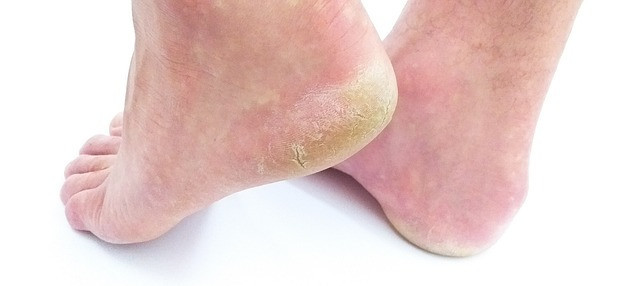
Cloves can help fight fungal infections and candida overgrowth by killing the fungi and yeast that cause them. Cloves have been shown to have antifungal effects against various types of fungi, including those that have become resistant to pharmaceutical drugs. Cloves can help treat fungal infections such as athlete’s foot, ringworm, and candidiasis. They can also inhibit the growth and adhesion of candida to the mucosal surfaces, preventing candida overgrowth and its symptoms.
Candida overgrowth is a condition where the yeast Candida albicans grows out of control in the gut, mouth, or vagina, causing symptoms such as bloating, gas, fatigue, brain fog, and infections. A study in mice found that clove oil reduced candida colonization in the stomach and small intestine. Another study in test tubes found that clove extract inhibited the biofilm formation of Candida albicans on denture material.
Immune System Stimulation
Cloves can help boost your immune system by stimulating the production of immune cells and enhancing their activity. Cloves have been shown to enhance the humoral immune system response, which involves the production of antibodies that fight foreign invaders. Cloves can also modulate the cellular immune system response, which involves the activation of immune cells that kill infected cells. By strengthening your immune system, cloves can help you ward off infections and diseases.
A study in rats found that clove extract increased the production of immunoglobulin G (IgG), an antibody that plays a key role in immunity. Another study in mice found that clove oil enhanced the activity of natural killer (NK) cells, which are immune cells that destroy tumor cells and virus-infected cells.
Nutritional Content of Cloves: What’s in a Clove?
Cloves are not only beneficial for your health but also nutritious for your body. They contain fiber, vitamins, minerals, and phytochemicals that can support your overall well-being. Here is what you can get from one teaspoon (2 grams) of ground cloves:
- Calories: 6
- Carbs: 1 gram
- Fiber: 1 gram
- Manganese: 55% of the Daily Value (DV)
- Vitamin K: 2% of the DV
Manganese is an essential mineral that plays a key role in brain function and bone health. It also helps activate enzymes that are involved in metabolism, antioxidant defense, and hormone production.
Vitamin K is an important vitamin that helps with blood clotting and bone health. It also helps regulate calcium levels in the body and may protect against osteoporosis and cardiovascular disease.
Fiber is a type of carbohydrate that helps with digestion and lowers cholesterol levels. It also helps you feel full longer and may prevent overeating and weight gain.
Beta-carotene is a type of carotenoid that gives cloves their rich brown color. It is a provitamin that can convert into vitamin A, which is vital for eye health, immune function, and skin health.
Eugenol: The Key Compound in Cloves: How Eugenol Gives Cloves Their Power
Eugenol is the main compound in cloves that gives them their distinctive aroma and taste. It is also responsible for many of the health benefits of cloves, as it has anti-inflammatory, antioxidant, antibacterial, antifungal, antiviral, and analgesic properties.
Eugenol works by interacting with various receptors and enzymes in the body. For example, it can inhibit the enzyme cyclooxygenase (COX), which is involved in inflammation and pain. It can also scavenge free radicals, which are unstable molecules that can cause oxidative damage to cells and DNA. It can also modulate the activity of certain neurotransmitters, such as serotonin and dopamine, which are involved in mood and cognition.
However, eugenol is not without side effects or precautions. Consuming too much eugenol can cause allergic reactions, bleeding disorders, or drug interactions. Some people may be sensitive or allergic to eugenol and experience symptoms such as skin rashes, itching, swelling, or difficulty breathing.
Eugenol can also interfere with blood clotting and increase the risk of bleeding or bruising. Therefore, people who have bleeding disorders or take blood-thinning medications should avoid or limit their intake of cloves. Eugenol can also interact with certain drugs, such as antidepressants, anticonvulsants, or painkillers, and affect their effectiveness or cause adverse effects.
Therefore, it is important to use cloves and clove oil with caution and moderation. Consult your doctor before using cloves or clove oil if you have any medical conditions or take any medications.
How to Consume Cloves: Tips for Using Cloves in Your Kitchen
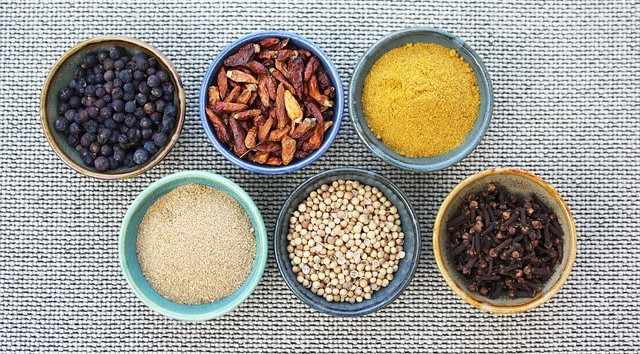
Cloves are a versatile spice that can be used in various ways to add flavor and health benefits to your food and drinks. You can use whole or ground cloves, depending on your preference and recipe. Here are some tips for using cloves in your kitchen:
- Add whole cloves to spice mixes, such as pumpkin pie spice or garam masala. You can also make your own spice mix by combining cloves with other spices, such as cinnamon, nutmeg, cardamom, ginger, or allspice.
- Season meats with whole or ground cloves, such as ham, beef, lamb, or chicken. You can also stud whole cloves into the meat before roasting or baking it to infuse it with flavor and aroma.
- Flavor hot beverages with whole or ground cloves, such as tea, coffee, cider, or mulled wine. You can also make your own clove tea by steeping whole cloves in hot water for 10 minutes and adding honey or lemon juice for extra flavor.
- Enhance baked goods with ground cloves, such as cookies, cakes, pies, muffins, or bread. You can also add ground cloves to oatmeal, granola bars, or smoothies for a spicy kick.
How to Chew Cloves for Health Benefits
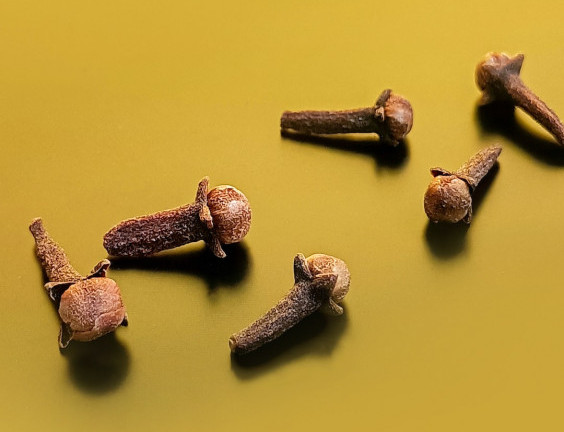
One of the easiest and most effective ways to enjoy the health benefits of cloves is to chew them. Chewing cloves can help you with various health issues, such as toothache, infection, blood sugar, oral health, immunity, digestion, liver function, and headache.
To chew cloves, you can either use whole or ground cloves. You can chew one or two whole cloves in the morning on an empty stomach, or after meals to aid digestion. You can also mix a pinch of ground cloves with honey and take it orally. Chewing cloves is a simple and natural way to spice up your health and well-being.
However, be careful not to chew too many cloves at once, as they can cause irritation or a burning sensation in the mouth. Also, consult your doctor before chewing cloves if you have any medical conditions or take any medications.
Conclusion
Cloves are a super spice that can spice up your health in many ways. They have a long history of use in various cuisines and cultures. They are also nutritious and beneficial for your body and mind. They can help reduce inflammation, fight free radicals, protect your stomach and liver, lower your blood sugar levels, improve your cardiovascular health, fight cancer cells, improve your oral health, relieve pain, fight fungal infections, and prevent candida overgrowth.
You can use cloves in various ways to add flavor and health benefits to your food and drinks. You can use whole or ground cloves, depending on your preference and recipe. You can also try some of the tips and recipes we shared in this blog post.
We hope you enjoyed learning about the amazing benefits of cloves and how to use them in your kitchen. If you have any questions or feedback, please leave a comment below. And don’t forget to share this post with your friends and family who might benefit from it.
Thank you for reading and happy spicing!
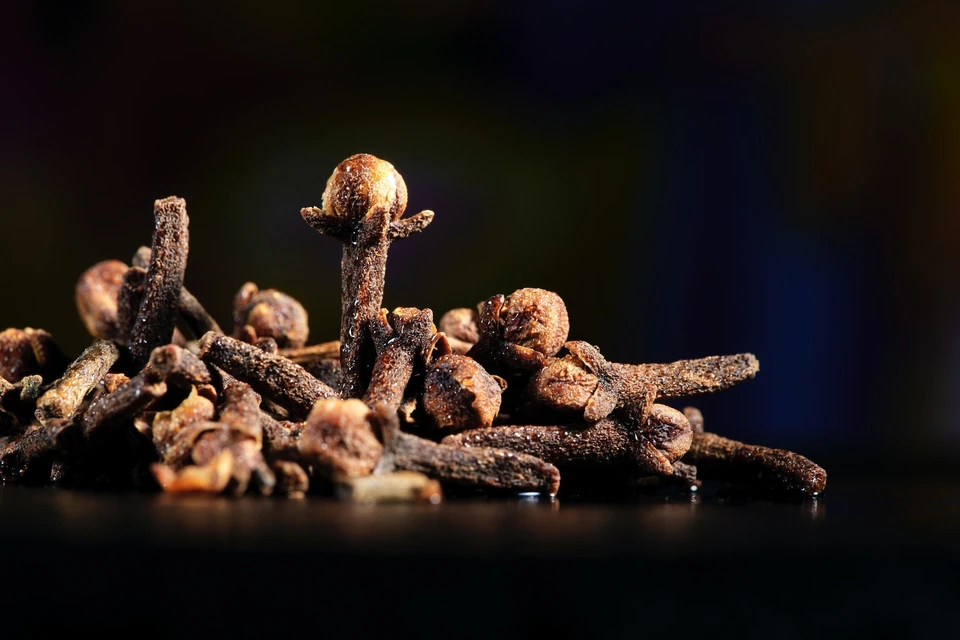


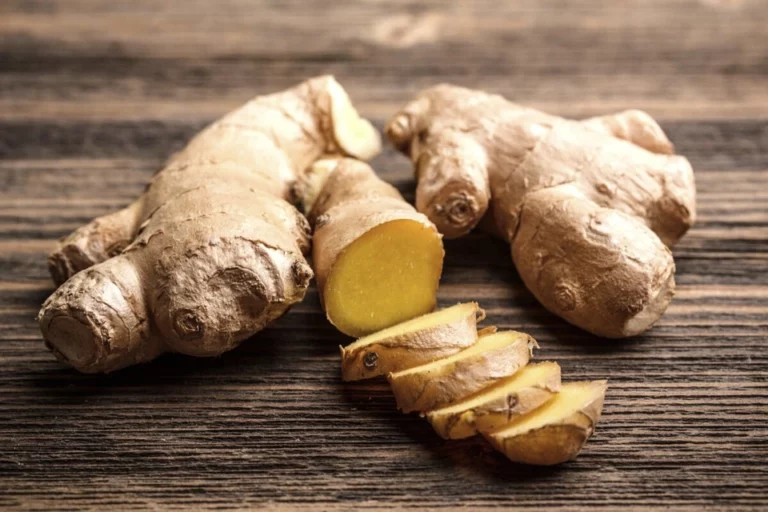

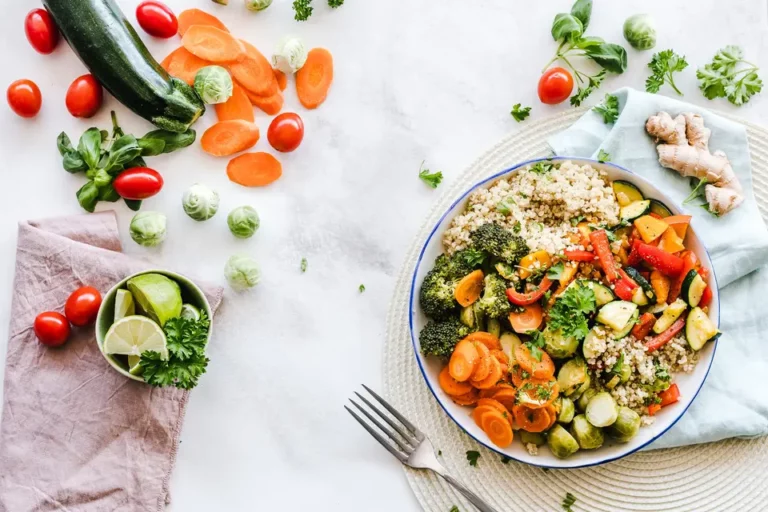

Wow! Cloves are incredible! I kind of already knew they were, but have never gotten around to researching them, and so, did not realize the extent of their wonderfulness. They’re pretty much an elixir of life, aren’t they?
I’ve added whole and ground cloves to my grocery list and will also look for clove oil.
I’ve been doing vegetable ferments, for food-based probiotics and reading your article gave me a great idea…fermented clove honey! OMG! That sounds so good!
Also. You mentioned extract of clove, but what about tinctures? Is that a thing?
Thank you so much for this highly informative article.
Anna
Hello Anna, thank you for your enthusiastic and appreciative comment. I’m happy to hear that you love cloves and that you found this article useful and inspiring. Cloves are indeed a remarkable spice that can enhance your health and well-being in many ways.
I think your idea of fermented clove honey sounds delicious and creative. I would love to hear how it turns out. You can also use cloves in other fermented foods, such as sauerkraut, kimchi, or kombucha, to add flavor and nutrition.
As for your question about cloves tincture, it is not very common, but it can be found at some health food stores, supermarkets, and online stores. You can make your own clove tincture at home by soaking whole or ground cloves in a glass jar with 80-100 proof alcohol, vodka, or brandy for about two weeks. Then, strain the liquid and store it in a dark bottle (visit Clove Tincture Recipe – Healthy Mind Body (healthy-mind-body.com) for more details). You can use the clove tincture as a natural remedy for toothache, sore throat, cough, nausea, or indigestion. You can also add a few drops to your tea, water, or juice for a boost of antioxidants and anti-inflammatory compounds.
Thank you so much for reading this article and sharing your thoughts and ideas. I hope you enjoy using cloves in your daily life and reap their amazing benefits. Please feel free to contact me if you have any questions or feedback. I look forward to hearing from you again.